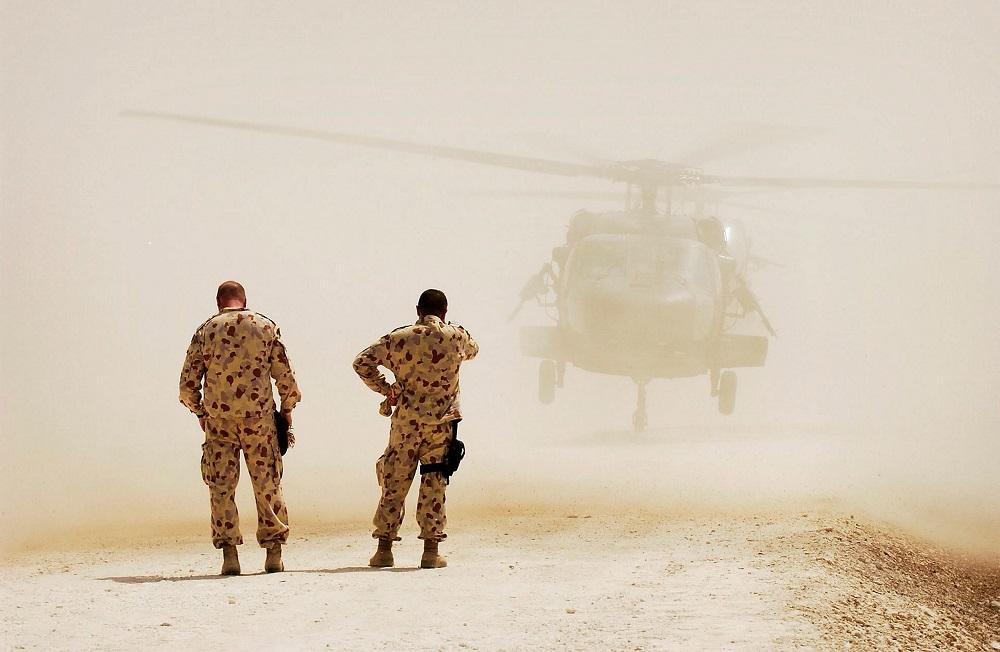
Today marks the 20th anniversary of the invasion of Iraq. The subsequent failure by the forces sent into Iraq to find weapons of mass destruction commensurate with publicised Western assessments ensured that the basis for the attack was viewed as an intelligence failure equivalent to Pearl Harbor or 9/11. This was compounded when the startling coalition military success of March–April 2003 turned into a grinding counterinsurgency campaign.
In Australia, this begat a parliamentary committee inquiry, and in response to its recommendation Prime Minister John Howard commissioned a separate, broad-ranging inquiry into Australia’s intelligence agencies undertaken by Philip Flood, a former director-general of the Office of National Assessments (ONA) and Australian ambassador to Indonesia. The Flood report was released in July 2004 and would ultimately serve as a hinge between the Australian intelligence community of the immediate post–Cold War period and today’s national intelligence community.
Of course, what readers in 2004 wanted to know was what Flood had uncovered about the ‘intelligence failures’ that instigated the inquiry—not only Iraqi WMD but also alleged failures in relation to the unrest in Solomon Islands and the 2002 Bali bombings—or what Flood termed ‘recent intelligence lessons’. Each would be examined through the particular lens of the related analysis undertaken by ONA and the Defence Intelligence Organisation (DIO).
The first—and, from the perspective of the review, foremost—of those failures had been the mis-assessment of Iraq’s WMD capabilities.
Flood was unsparing in his assessment of this as an Australian intelligence failure: ‘Intelligence was thin, ambiguous and incomplete.’ This was particularly the case in assessment of Iraq WMD stockpiles, though DIO had been more cautious on the subject than ONA. Nonetheless, and overall, ‘assessments produced by ONA and DIO on Iraq WMD … reflected reasonably the limited available information and used intelligence sources with appropriate caution’. A comprehensive national assessment might have aided this process, but none had been produced.
And despite a heavy reliance on ‘foreign-sourced intelligence collection’, both ONA and DIO had formed assessments independent of the US and UK—‘in several notable cases choosing not to endorse allied judgments’. Disappointingly for critics of the government, Flood concluded that there was ‘no evidence to suggest policy or political influence’ on either agency.
For many Australians, of even greater importance was finding out whether the appalling terrorist atrocity committed by Jemaah Islamiyah (JI) in Bali on the evening of 12 October 2002 could have been prevented.
Here, too, Flood didn’t hesitate to call out what was ‘fundamentally a regional intelligence failure’. ‘Australian agencies should have known more’ about JI, he wrote, but the ‘failure to appreciate the serious nature of the threat posed by JI was widespread outside Australia’s intelligence agencies, and in Indonesia itself’.
However, Flood disappointed conspiracy mongers. He had seen ‘nothing to indicate that any Australian agency … had any specific warning of the attack in Bali’.
A third failure was that attributed to the strategic surprise (at least to the Australian public) of the collapse in law and order in Solomon Islands, and the subsequent need to deploy the Regional Assistance Mission to the Solomon Islands (RAMSI) in 2003 including a considerable Australian military and policing presence.
Flood found that ONA’s and DIO’s assessments on the Solomons stood ‘in a positive light’. ‘Particularly in the reporting from mid-2001, assessments clearly showed the ability of [ONA and DIO] to make robust, independent assessments on issues in Australia’s near region’.
Flood addressed claims concerning DIO, and more specifically its analysis of Indonesia and East Timor. The report found no evidence of ‘pro-Jakarta or pro-Indonesia’ assessments by DIO (or by ONA) and no evidence of any pressure having been exerted on either agency (externally or internally) to produce such assessments.
Flood had not only been tasked with examining these ‘recent intelligence issues’. His terms of reference extended to the effectiveness of oversight and accountability mechanisms within the intelligence agencies (including priority-setting), the ‘division of labour’ among the agencies and their communications with each other, the maintenance of contestability in intelligence assessments, and the adequacy of resourcing (especially for ONA). In forthrightly addressing these matters, Flood laid the foundations for the national intelligence community that would be assembled under the structural and other reforms instituted by the 2017 independent intelligence review by Michael L’Estrange and Stephen Merchant.
Upon receipt of the Flood report, the Howard government hastily accepted all recommendations except ONA’s renaming (as the Australian Foreign Intelligence Assessments Agency).
The response of the Australian press to the report was mixed. The Age said it was ‘diplomatic in its criticism’, and the ABC noted the ‘clearing’ of the Howard government. The Financial Review suggested that the Australian intelligence community had been ‘lashed’ by the report’s findings.
What was absent from most commentary was the suggestion that the Flood report had itself been ‘thin’ or ‘ambiguous’. And for good reason. On reflection, the unclassified version of the report remains one of the most detailed and unsparing public accounts of Australia’s foreign intelligence agencies and their functioning.